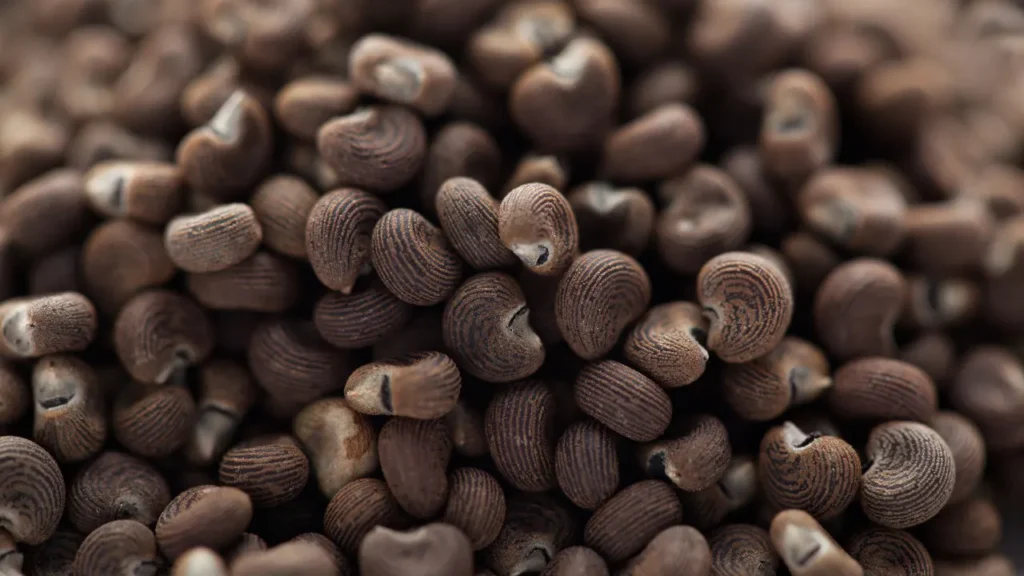Abelmoschus moschatus is a flowering plant native to many regions of Asia that is frequently grown for its seeds. Due to their numerous health advantages, these seeds have been utilized in traditional medicine for generations. Ambrette has gained more attention recently as a nutritional supplement because of its potential health advantages. This article will examine the characteristics of ambrette, as well as its advantages for health, recommended dosage, negative effects, possible drug interactions, and appropriate usage.
You May Also Like:
Five Great Reasons to Try a Nootropic Mushroom Supplement
The Best Mushroom Supplements for Memory: 5 Top Brands Reviewed
AMBRETTE: Benefits, Dosage, Side Effects, Drug Interactions, and Other Important Information is an original (NootropicsPlanet) article.
Nature of Ambrette
Ambrette seeds are tiny, firm, and brown in color. They smell musky because they contain ambrette oil, a fragrant oil. Different techniques, including solvent extraction and steam distillation, are used to extract the oil from the seeds. Ambrette oil has a complicated chemical makeup that includes a number of different substances like muscone, ambrettolide, and other terpenes.
Health Benefits of Ambrette
Ambrette has been used in traditional medicine for its various health benefits, including its anti-inflammatory, analgesic, and antimicrobial properties. Additionally, recent studies have suggested that ambrette may have other potential health benefits, including:
- Ambrette has a high concentration of antioxidants, which can help shield the body from the oxidative stress brought on by free radicals. Free radicals are unsteady molecules that have the potential to harm cells and result in different health issues, including cancer, heart disease, and aging.
Anti-inflammatory characteristics: It has been demonstrated that ambrette contains anti-inflammatory characteristics that may assist in lessening inflammation in the body. Although inflammation is a normal reaction to injury or infection, chronic inflammation can also be a factor that leads to diabetes, heart disease, and arthritis.
- Ambrette has been demonstrated to possess anti-cancer capabilities, particularly in connection to breast cancer. According to studies, one of the components in ambrette oil called ambrettolide may be able to stop the growth of breast cancer cells.
- Anti-anxiety Properties: Ambrette has long been valued for its relaxing and calming properties. Ambrette oil contains the chemical muscone, which has been linked in studies to possible anxiolytic properties.
- Ambrette possesses anti-obesity qualities, which have been demonstrated. Ambrettolide can lessen body weight growth and improve insulin resistance.

Chemistry of Ambrette
Among the many chemical substances found in ambrette are muscone, ambrettolide, and other terpenes. Ambrette’s distinctive musky perfume is attributed to the ketone muscone, while its sweet, flowery scent is ascribed to the lactone ambrettolide. Ambrette oil contains terpenes, which are also responsible for its flavor and smell.
Ambrette oil’s chemical makeup can change based on the area and environment where the plant was cultivated, the extraction process, and other elements. The oil is normally extracted by solvent or steam distillation, and the finished product can be utilized as a fragrance, flavoring, or nutritional supplement.
Physiological Mechanisms of Action of Ambrette
Although the physiological processes of ambrette activity are not fully understood, research has indicated that ambrette oil’s different components may interact with a variety of bodily receptors.
Endocannabinoid system: Studies have revealed that the endocannabinoid system’s CB1 and CB2 receptors, which are involved in a number of physiological functions like hunger control, pain perception, and immunological response, may interact with ambrettolide.
Gamma-Aminobutyric acid (GABA) Receptors: It has been demonstrated that ambrette oil modulates the activity of GABA receptors, which are crucial for controlling anxiety, sleep, and muscular relaxation.
Estrogen Receptors: It has been demonstrated that the ambrette oil component muscone has an affinity for estrogen receptors, which play a role in a number of physiological processes like bone density.
Neurotransmitters: The creation of several neurotransmitters, such as dopamine and serotonin, which are involved in the control of mood, motivation, and enjoyment, may also be impacted by ambrette oil.
Because of the ambrette oil’s complicated chemical makeup and potential interactions with several receptors and neurotransmitters, it is possible that it may have different physiological effects on the body and brain. To completely comprehend the mechanisms of action of ambrette and its potential health advantages, more research is nonetheless required.

Optimal Dosage of Ambrette
As a dietary supplement, ambrette does not have a recommended dosage. However, it is advised that people get medical advice from a qualified individual before taking ambrette as a supplement. You have to make sure that the concentration of ambrette oil that you are taking is of similar concentration. Excessive use with a high concentration of ambrette oil will lead to negative effects.
Side Effects of Ambrette
When used as a spice or flavoring ingredient in tiny amounts, ambrette is typically regarded as being harmless. Ambrette oil can have negative consequences, such as skin irritability, allergic responses, and respiratory issues if used excessively. Additionally, pregnant women and people with a history of seizures shouldn’t use ambrette oil.

Potential Substance Interactions with Ambrette
The potential drug interactions with ambrette are not well studied. Hence, people are advised to speak with a healthcare provider, especially if they are on medication or have underlying medical issues.
Best Responsible Use of Ambrette
It is crucial to keep in mind that the best method to use ambrette is as a supplement and never as a substitute for medical care. Moreover, you should always strictly follow the manufacturer’s or a doctor’s dosage recommendations and refrain from taking too much ambrette.
AMBRETTE:
Conclusion
In conclusion, Abelmoschus moschatus, commonly known as ambrette can produce aromatic seeds which are packed with potential health benefits. These seeds can be made into oils or supplements and it claims to have a high concentration of antioxidants and anti-inflammatory properties. It is also capable of reducing the possibility of developing breast cancer with its anti-cancer effects. It has then gained the attention of the supplementary industry due to its diverse potential. However, if you plan to consume Ambrette on a daily basis as a dietary supplement, you need to do your own comprehensive research and study to make sure you are suitable for this supplement. Most importantly, you need to get advice from medical experts regarding that information.

References:
- Efficacy And Safety of Abelmoschus Moschatus Capsules Combined with Tripterygium Glycoside Tablets on Diabetic Nephropathy: A Systematic Review and Meta-Analysis. Retrieved from: https://pubmed.ncbi.nlm.nih.gov/36172199/
- Evaluation Of Abelmoschus Moschatus Extracts for Antioxidant, Free Radical Scavenging, Antimicrobial and Antiproliferative Activities Using In Vitro Assays. Retrieved from: https://pubmed.ncbi.nlm.nih.gov/21849051/
- Phytopharmacology Of Abelmoschus Moschatus Medik.: A Review. Retrieved from: https://www.semanticscholar.org/paper/Phytopharmacology-of-Abelmoschus-moschatus-medik.%3A-Pawar/8f8383c553843cd361ee7277045f768dd7aed818
Important Note: The information contained in this article is for general informational purposes only, and should not be construed as health or medical advice, nor is it intended to diagnose, prevent, treat, or cure any disease or health condition. Before embarking on any diet, fitness regimen, or program of nutritional supplementation, it is advisable to consult your healthcare professional in order to determine its safety and probable efficacy in terms of your individual state of health.
Regarding Nutritional Supplements Or Other Non-Prescription Health Products: If any nutritional supplements or other non-prescription health products are mentioned in the foregoing article, any claims or statements made about them have not been evaluated by the U.S. Food and Drug Administration, and such nutritional supplements or other health products are not intended to diagnose, treat, cure, or prevent any disease.


